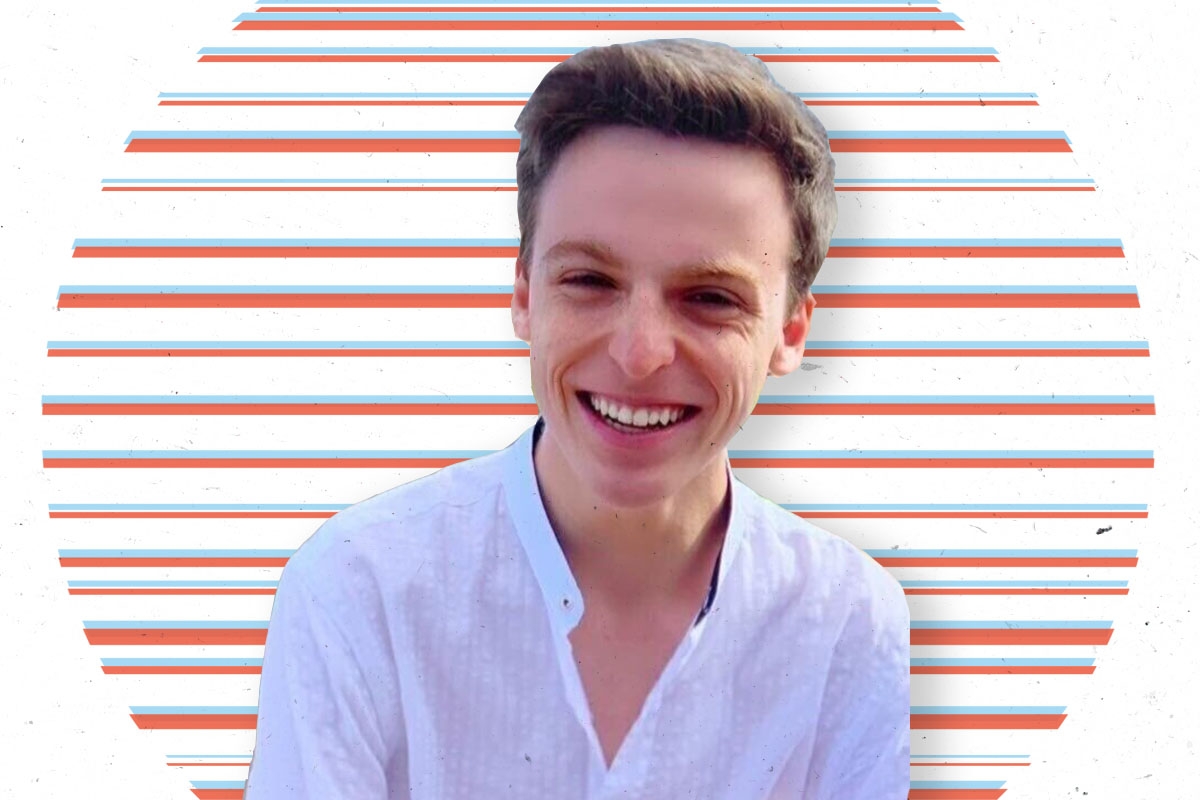Jacob Cramer founded his nonprofit, Love For Our Elders when he was just 13. Cramer’s grandfather had passed away three years prior, and that devastating loss led him to want to connect with other seniors.
After volunteering at senior homes and writing letters to residents, Cramer realized that there was a “loneliness epidemic” in these facilities. According to a recent study from the National Academies of Sciences, Engineering, and Medicine, more than one-third of adults aged 45 and older feel lonely, and nearly one-fourth of adults aged 65 and older are considered to be socially isolated. That loneliness can often carry mental and physical health risks for older people. With the aid of letters and care packages, Cramer sought to do something to fight that “epidemic” and to bring brightness and connection to older adults around the country.
In the years that followed, Cramer, now 20 and a sophomore at Yale, expanded Love for Our Elders, recruiting volunteers to write letters to older adults across the country and the world. Love for Our Elders has sent letters to more than 20,000 seniors in over 65 countries. They’ve worked with big companies like Dell, Google, and Humana on letter-writing campaigns — which helped collect more than 95,000 letters to seniors.
Love for Our Elders’ mission is especially vital during the coronavirus pandemic when loneliness is rising among seniors, for whom the increased health risk and the need for social distancing bring even more isolation. Luckily, according to the CDC, writing letters is still safe, and Cramer has expanded the organization’s mission to include video messages as well as written ones.
Kveller spoke to Cramer, who is a 2020 recipient of a Diller Teen Tikkun Olam Award, over e-mail about Love for Our Elders, how Judaism impacts his activism, and what he hopes to accomplish in the future.
Can you tell me a little bit about your grandfather and what inspired Love for Our Elders?
When my grandpa passed away, I decided to start volunteering in a local senior community as a bingo announcer. As I got to know the residents, many of them told me they felt lonely and never had any visitors. I researched loneliness and realized its scope was beyond just my local senior community. So, I started writing love letters.
Can you talk a little bit about the early days of Love for Our Elders?
At 13, I applied for grants; read, packaged, and mailed letter bundles; and ran social media all by myself. I’m so grateful for my team today!
You started this organization when you were just 13 — what made you believe that you could expand it? How did you do it?
We’re social media born and bred. We leverage virtual communities and create a meaningful social service for seniors. I don’t remember my thought process at 13, but I think my love for writing letters and how much I cared about our elders gave me passion and purpose — which fueled my fire early on to make something of my simple letter-writing idea.
What were the most surprising things you learned working on Love for Our Elders?
I can’t do everything on my own. Year to date, we’ve sent more than 64,000 letters to senior communities around the globe, thanks to some pretty awesome volunteers.
What are some of your most moving memories from working on Love for Our Elders?
This February, I got to pass out letters of love with my roommate, Casey, at Whispering Pines Nursing and Rehabilitation in East Haven, Conn. It was so special getting to share my work with him and see the smiles on the seniors’ faces when we read them the cards. It’s particularly special because that was our last in-person volunteering event.
This organization and mission seem especially important during Covid-19, when so many people are isolated in nursing homes. How have your operations changed during the pandemic?
We’ve begun accepting video letters to make volunteering more accessible from home and to reach communities we might not otherwise be able to. You can volunteer your time by making a 30-second horizontal video message of love, hope, and encouragement and DM it to us on Instagram or Love For Our Elders on Facebook, and we’ll send your video to a senior who is isolated by the pandemic.
Tell me a little bit about your Kindness Ambassador program and the digital storytelling initiative.
We have a Facebook group of volunteers that we call our Kindness Ambassadors who help us build relationships with their local senior communities, brainstorm with us to create and revise programs, copy edit, find grants, etc. We currently have just over 1,000 ambassadors. We also collect uplifting narratives of inspiring elders. It’s an effort to preserve stories and fight ageism through humanizing our elders and facilitating intergenerational sharing.
How have Jewish values and Judaism impacted your work for Love for Our Elders?
Last year, my life was uprooted from the community I know and love in the Cleveland suburbs to unfamiliar, urban New Haven. Immediately, I was challenged to find a sense of belonging among my new Jewish community.
Now, I feel more Jewish than ever. I used to think “Jewish” was eating grandma’s kugel and going to temple twice a week, but now I understand: It’s me. The way that I live a conscientiously Jewish lifestyle is more than doing conventionally “Jewish activities.” As a college student, I construct my Jewish identity through all of my day-to-day experiences. Praying in unison with my temple’s live-streamed Friday night Shabbat service after a hard week connects me to my faith. So do my late-night talks on my dorm room floor about Israel with Jewish and non-Jewish friends, where we walk away with something new. Embodying lovingkindness, gemilut hasadim, while interacting with strangers lets me connect to my roots, especially so far from the community I love.
Who inspires you?
A lot of people. But definitely my friends and my Love For Our Elders team.
What’s next for you?
I’m working on a children’s book related to our work, which I’m really excited about!
Header Image courtesy of Diller Tikkun Olam Awards. Design by Grace Yagel.









